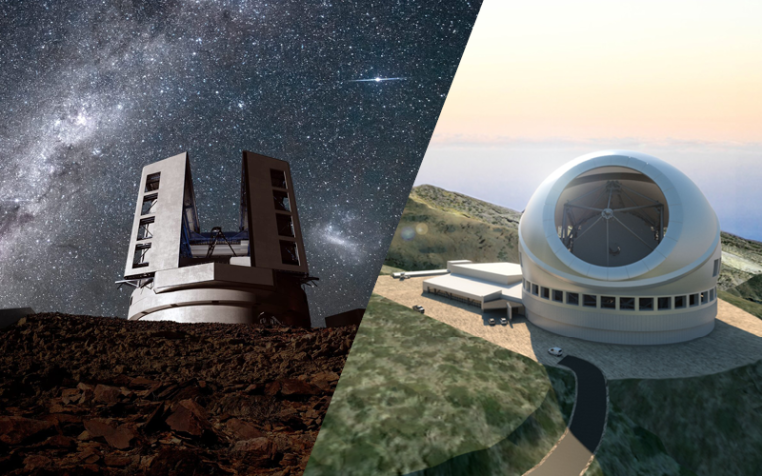External Panel to Advise NSF on Extremely Large Telescope Plans

Renderings of the Giant Magellan Telescope, left, and the Thirty Meter Telescope.
Left: GMTO Corporation / Right: M3 Engineering
The National Science Foundation is convening an external panel to inform the agency’s decision on whether to support either of the two Extremely Large Telescope projects currently in contention for funding from NSF: the Giant Magellan Telescope (GMT) and the Thirty Meter Telescope (TMT).
“After discussion with many interested parties on our future investments for very large telescopes, including the White House, Congress, and the board, I have decided to convene an external panel to provide input to me as I consider whether to advance either of the two candidate projects [GMT and TMT] to the final stage,” said NSF Director Sethuraman Panchanathan during a meeting
“I want to be very clear that this is not a decision to construct any telescopes,” continued Panchanathan. “This is simply part of a process of gathering critical information to inform my decision-making on advancing either project to the final design stage.”
The announcement comes after NSF’s board signaled
The panel will be asked to weigh in on a series of considerations for each project, Panchanathan said, including progress made since the preliminary design reviews, partnerships and resources, risks and risk mitigation, governance models, scientific complementarity to the European Southern Observatory, opportunities for early career scientists, and engagement with the public. The panel will also consider what agency resources would be needed to support each project through the design, construction, and operation phases, Panchanathan said.
The composition of the panel is still being decided, but Panchanathan promised it would include scientists and experts in construction, design, and risk assessment who are capable of “assessing the readiness of the project from all perspectives.”
Panchanathan said the panel is expected to report back before the end of the fiscal year in September so that its findings “can inform our budget process.”


